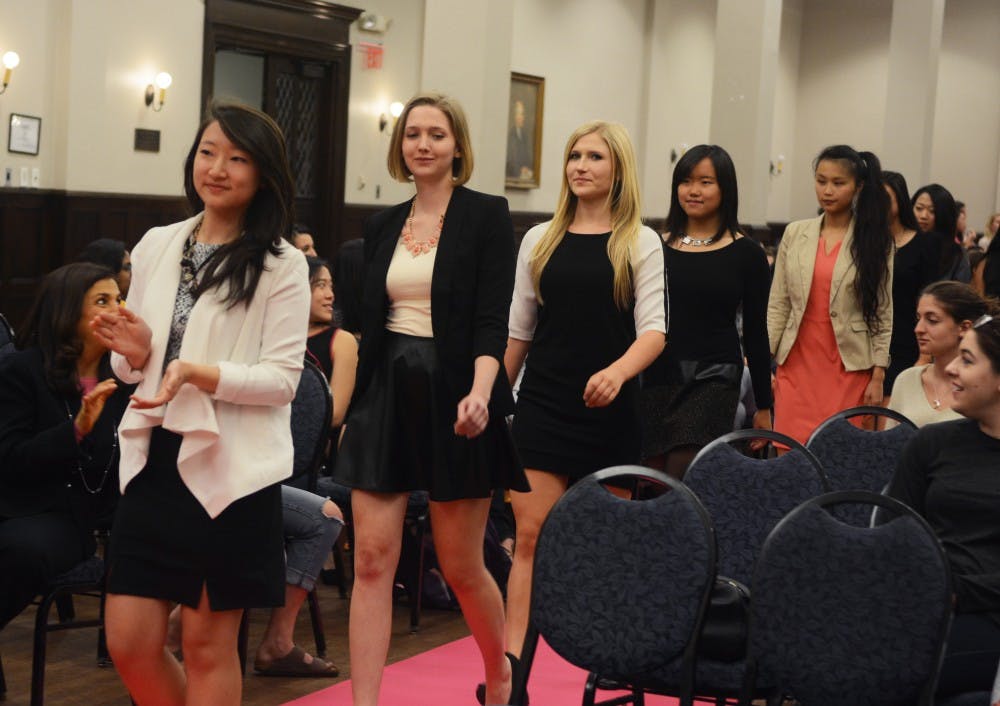“Look good, feel good.” “Dress for success.” I’m sure you’ve heard these before.
Think about how often you see your classmates dressed in pajama pants, hoodies, and t-shirts. It’s not rare to see the person you sit next to in math walk in with a pair of slippers on.
Even though you see your classmates dressed like this more often than not, it has been proven that college students who dress well are more alert when they get to class. Not to mention, looking good really does boost your self-confidence. Having self-confidence in class doesn’t just mean you feel smart. Dressing nice may give you the courage to raise your hand to answer a question or talk to that intimidating professor after class.
When it comes to impressing your peers, how you dress makes an impact on the people who want to work with you on a group project, for example. If you are required to form a group with some of your classmates, students who are more productive may gravitate toward choosing group members who are well-dressed, as this is a sign of planning ahead and being professional.
Wearing pajamas tells your mind and body that it’s time for bed. Wearing pajamas to class, therefore, is probably not the best idea. Unless it’s midnight, and you truly are ready for bed, you shouldn’t be in your pajamas if you plan on getting work done or going to your next class. Wearing sweats and t-shirts makes you feel comfortable and tempts your body to take a nap or just rest instead of getting things done. When you get back from class and have the choice to either jump in bed and watch Netflix or get started on that paper due Friday, it’s a lot more tempting to choose the first option if you’re already wearing clothes that signify sleep. If you’re not wearing the same thing you wear to bed, it’s much harder to choose the first option. Wearing a skirt or a pair of khakis makes it more difficult to just jump right into bed; the choice then becomes having to change outfits or start doing something productive.
Classes at a university, especially one as professional and as highly-respected as Penn, should be taken seriously and professionally. You wouldn’t show up to a job or an interview in leggings and a sweatshirt; the same should apply at Penn. It is just as important to dress well when you show up to class as it is when you have an interview for a research position. Allowing your professors to see you in your comfiest sweats might lead them to believe you are lazy. Without knowing anything about your performance as a student, this first impression could cloud your professors’ judgments of you when grading your work.
Understandably, it can be difficult to just show up on time to early morning classes, let alone be well-dressed for them. However, being well-dressed for class doesn’t require you to put on your best dress or dig out your nicest tie. Make it a habit to spend an extra ten minutes in the morning to change out of your pajamas, run a comb through your hair, and exchange your slippers for a nice pair of shoes. If waking up earlier for class doesn’t sound appealing to you, spend a few minutes the night before and have your outfit picked out and ready to slip on the next morning.
It’s okay if dressing up doesn’t happen on a daily basis, either. Start by designating one or two days every week. And it doesn’t just apply to class; the same goes for club meetings, campus events, and even going out to lunch with friends on the weekend.
SEE MORE FROM ALEXA RYBICKI:
Unfortunately, the way you look and dress affects the way in which people treat you. Although your appearance by no means determines your worth or gives anyone any reason to give you less respect, people form judgments and opinions about you just by observing the way you look. Dress well and notice the difference in both how you feel and how the people around you view you, speak to you, and respect you.

ALEXA RYBICKI is an Engineering sophomore studying bioengineering. She is involved in the engineering and science sorority, AOE, as well as Penn Assistive Devices and Prosthetic Technologies (ADAPT). Her email address is arybicki@seas.upenn.edu.









